When investing in a stationary generator, understanding its lifespan is a crucial factor in shaping an informed decision. A generator is much more than mere hardware: it is a protection for your residence or business when faced with an unplanned power outage. Yet, like most machines, its performance and longevity are affected by numerous factors such as maintenance and employment, and of course, the quality of the generator itself. This article will cast light on the lifespan of stationary generators in general, factors affecting durability, and practical considerations on maintaining these generators for greater performance in real situations. Consequently, toward the end of this article, you will know how to ensure that your generator will serve you well in both future reliability and value.
Understanding Generator Lifespan
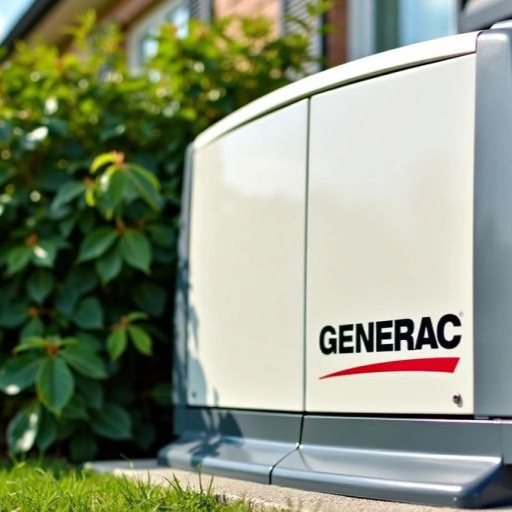
The average lifespan for a stationary generator is generally between 10,000 and 30,000 hours, depending on brand, model, and maintenance. Regular servicing, like oil changes, filter replacements, and inspections, should be done to maintain optimal performance and prolong generator life. Also, make sure the generator is well loaded without being either overloaded or underloaded, as this can cause excessive wear and reduce lifespan. So, with good maintenance, in real-world life, most generators will give 20-30 years of good service.
Factors Influencing Generator Lifespan
- Maintenance Practices: Proper maintenance goes a long way in the health of the machines and includes timely oil changes, the replacement of filters, and inspection of the generators. Generators that are maintained well operate efficiently and are less prone to breakdown. Hence, maintenance directly contributes to increased life expectancy. In the absence of maintenance, lifespan and performance are drastically reduced.
- Load Management: The generator must be worked within the loads recommended for it so as not to put unnecessary stress on the components. One overload scenario would result in overheating and consequently in a fast wear or failure of components which will diminish the lifespan of the generator.
- Environmental Conditions: External temperature, humidity, and dust are natural inhibitors. Generators in harsh climatic and dust environments tend to deteriorate faster. Using protection like an enclosure or shelter does help slightly.
- Component Quality: With parts of superior quality, the generator is likely to have a longer life. Premium brands, due to their superior engineering, quality materials, and advanced technologies, provide for an extended service life as compared to other cheap alternatives.
- Frequency of Use: More frequent or prolonged use wears generators faster; thus, operating in balance with downtime for maintenance and upkeep is very important for performance and extended life.
- Fuel Quality: Poor quality or contaminants in fuel deposits can block fine engine components and reduce engine efficiency, thereby damaging it in the long run. The best solution to prevent this is to keep fuels clean and at high standards for good operation, thereby requiring fewer repairs.
The above factors bring out how care, maintenance, and working conditions are the key to maximizing generator life. By staying one step ahead to curb most of the usual pitfalls, a user will indeed be able to enjoy a reliable generator for decades.
Average Lifespan of Different Generator Types
The average lifespan of different generator types ranges from 1,000 to 30,000 hours, depending on the type, maintenance, and usage conditions.
|
Generator Type |
Average Lifespan |
Key Factors |
Maintenance |
Fuel Type |
|---|---|---|---|---|
|
Portable Generator |
1,000–2,000 hours |
Light use only |
Regular upkeep |
Gasoline/Diesel |
|
Standby Generator |
10,000–30,000 hours |
Proper installs |
Routine checks |
Diesel/Natural |
|
RV Generator |
3,000–6,000 hours |
Seasonal usage |
Fuel/filter care |
Gas/Propane |
|
Industrial Gen. |
20,000–30,000 hours |
Heavy-duty ops |
Strict schedules |
Diesel/Natural |
|
Solar Generator |
10+ years |
Battery quality |
Minimal needed |
Solar panels |
Expected Longevity of Stationary Generators
When it comes to stationary generators, their longevity is largely dependent on how they are used, maintained, and the quality of their components. Standby generators, when installed properly and maintained with periodic checks, would last from 10,000 to 30,000 hours. Using rough numbers, with moderate usage (around 500 hours per year), a standby generator that is maintained in proper condition can reliably operate for approximately 20 to 30 years.
In cases where the generators are constantly serviced for oil changes, full filter replacements, and checks to their overall performance, their lifetime can be extended greatly. According to industry experts, the choice of fuel is also a substantial factor that makes a difference. Since natural gas burns cleaner, the wear-and-tear effects are comparatively less in natural gas-operated generators than in diesel ones.
Besides, to forego the deteriorative effects on a generator, one may make use of predictive maintenance systems and diagnostics that come equipped with latest technology to forewarn any fault very early, thereby protecting the operational life of the generator. Pairing this with rigorous inspections ensures that these units provide extremely long but reliable power for critical power needs.
Maintaining Your Generator for Longevity
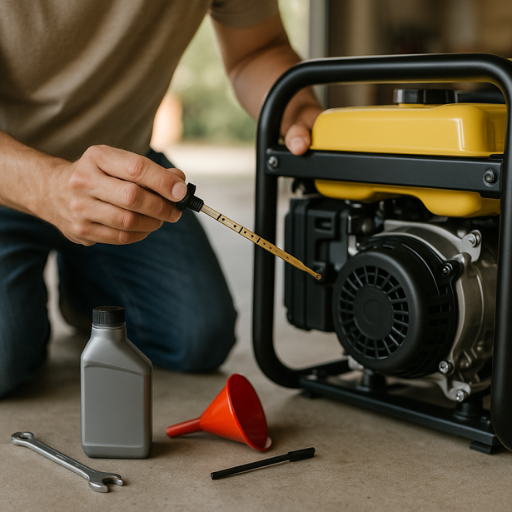
Maintenance is necessary if one wishes to extend the lifespan of the generator. To begin with, take into consideration the manufacturer’s recommended schedule for servicing, which normally includes changing oil, changing air filters, and inspection of spark plugs. The generator needs to be clean; dirt or debris might sometimes cause inefficiency. Always store the generator in a dry location with secure surroundings. Conduct periodic load testing on the generator to ensure it works properly and to detect any faults early. If you keep up with these practices, your generator will become well-known for its dependability and functionality.
Importance of Regular Maintenance
Maintenance, if regular and timely, can greatly increase any equipment’s lifespan and efficiency. On the contrary, equipment that is not maintained properly can lose 20% of its efficiency longer overtime, deriving out expensive I’ll lead to an ineffective operation. For example, an unmaintained generator might consume more fuel or present a noisy operation or might fail when a critical moment is required.
Up to 70 percent of equipment failures can be averted through proper maintenance. Important maintenance procedures include cleaning filters, replacing worn components, and tightening connections, all of which serve to prevent unusual malfunctions and reduce downtime. Properly maintained equipment lasts at least 50 percent longer than equipment that isn’t.
The lack of upkeep not only increases the cost of repairs, but it also creates definite safety risks, especially with high-power applications. For example, if a generator isn’t maintained regularly, it may overheat or leak fuel, both of which can create serious hazards. By investing in continuing maintenance, you will not only ensure efficiency and safety but save lots of money in the long run.
Key Maintenance Tips for Home Generators
- Check and Change Oil Regularly
The oil change is one of the life support systems for generators. Most manufacturers recommend that the oil be checked once every 50-60 hours of use, with a complete oil change within 100 hours of use. Use good-quality oil recommended by the manufacturer to ensure smooth operation, thus preserving the inside of the generator with little wear.
- Look at the Air Filter and Consider Replacing
A good clean air filter is important for air flow and combustion. Check the air filter for clogging, dirt, or damage every 25 hours of use or at least monthly. A bad air filter will reduce the performance of the unit and might eventually damage the engine.
- Check and Replace Spark Plugs Accordingly
Spark plugs are meant for ignition. Inspect them every 100 hours or as recommended by the manufacturer. Check for wear or residue build-up and replace the worn ones for smooth starting and engine efficiency.
- Maintain the Fuel System
Fuel, when kept for more than a year, becomes stale and can damage the engine. Keep the fuel fresh, stabilized, and clean the fuel tank and lines periodically. Change the gasoline in your generator every 6-12 months to prevent clogging, if it is a gasoline generator. Also, keep fuel stabilizers in mind to further prolong the life of the fuel.
- Test the Battery and Electrical Connections
The battery powers the starting mechanism of the generator, without which the generator will not start within the specified time. Test the battery at least once every month and check for corrosion on the terminals and whether it holds a full charge. Check loose electrical connections and tighten them up from time to time to prevent interruptions during operation.
Following the above-listed tips secures a home generator from ever failing and ensures the generator is ready to supply the needed power even during an emergency.
Scheduling Professional Servicing
As with anything, routine day-to-day maintenance at home is important, and professional generator servicing should also be scheduled for its long-term reliability and greatest performance. Experts recommend that a generator undergo inspection by a certified technician at least once every year or after every 200 hours of operation, whichever comes first. These professional services allow technicians to perform more advanced diagnostics, cleaning of intricate parts, and replacement of worn-out parts that may not be considered in routine maintenance. It is also advisable to check service recommendations provided by the generator manufacturer or their authorized dealers to ensure that the servicing does not void the warranty issued on the generator.
Such knowledge and the willingness to occasionally perform maintenance on yourself will keep the generator ready to fight any emergency power outage upon its activation.
Signs Your Generator Needs Replacement
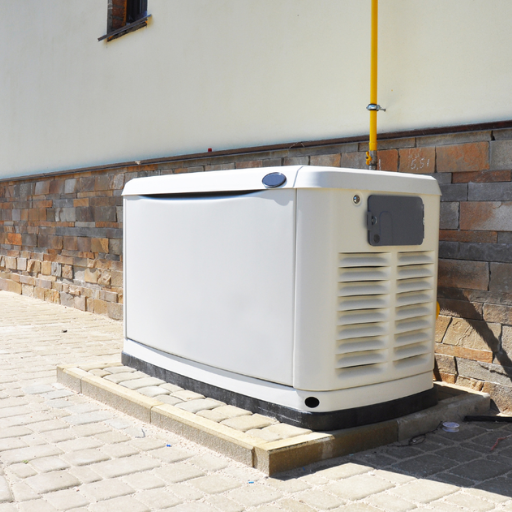
- Frequent Breakdowns: If the generator repeatedly refuses to start or shuts down during operation, it may cease to be dependable.
- Incriminating Repair Costs: For the decision regarding an upgrade, if, at any point, repairing the generator costs more than replacing it, then go for the upgrade.
- Reduced Efficiency: A reduction in power output, or rather an increase in fuel consumption, would indicate that the generator has to contend with great performance.
- Old Model: The older generator may not be available for parts and may not meet modern safety or efficiency standards.
- Unusual Noise or Vibration: Any unusual noise or vibration during operation represents a sign of severe internal wear or damage.
That said, if your generator shows one or more of the aforementioned symptoms, it may be high time to consider a replacement for consistent and trustworthy operations.
Decreased Performance Indicators
How can one recognize the early signs of generator degradation? One indicator would definitely be lowered power output, which leads to appliances or systems working below their optimal level. This lowering in power output is often linked with worn-out components or irregular maintenance. Nowadays, additional fuel consumption is equally considered a major red flag against efficiency in the generator’s power conversion process. Users often inquire about the causes behind overheating, which might be due to extended operation without sufficient cooling or even proper lubrication. Being on the lookout for such signs and performing periodic maintenance helps keep performance issues at bay and further extend the service life of this machine.
Unusual Noises to Watch For
Various possible causes exist for unusual noises emanating from your generator. Early identification is essential to prevent further damage. A loud knocking, rattling, or screeching sound can often be heard from generators. Knocking usually points to worn bearings or internal engine issues, whereas rattling might simply mean loose fasteners like bolts or protective covers. Screeching is often caused by belts slipping or being damaged. If such noises remain unaddressed for prolonged periods, the system is very likely to malfunction or even break down. Keep the generator at maximum performance by frequently inspecting and promptly resolving any problems you identify. Once you are familiar with noise patterns, it becomes easier to troubleshoot your problems as you minimize disruptions to operational efficiency.
Increased Fuel Consumption as a Red Flag
Increased fuel consumption is usually the hallmark of a possible generator system problem. Many people often wonder why their generator consumes more fuel over time. This concern is often linked to clogged air filters, worn spark plugs, or inefficient fuel injectors. Reduced system efficiency causes the generator to consume more fuel to put out the same output power, elevating operational costs. With regular maintenance, such as changing filters and keeping the engine clean and tuned, this problem will be lessened. The faster users address these issues, the more fuel-efficient the generator will become, ensuring longer life while offering users great cost savings.
Comparing Different Generator Types
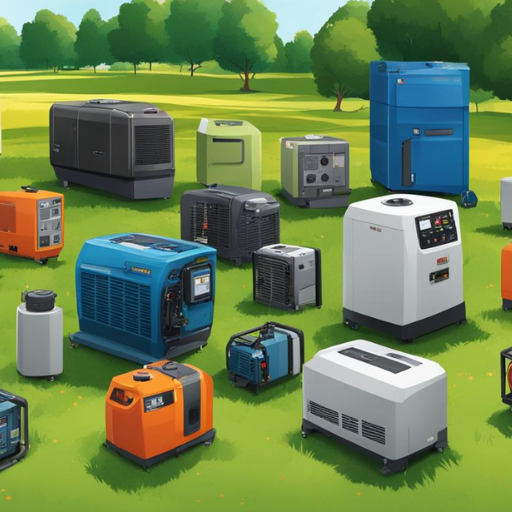
When selecting generator types, it is crucial to concentrate on your power needs and intended use. The three major types of generators and their basic features are as follows:
- Portable Generators
- Generally used to meet temporary or small-scale power needs.
- Often used for outdoor activities or emergency backup at home.
- These are relatively affordable and easy to transport.
- Standby Generators
- They are best suited for long-term and continuous power supplies to homes and businesses.
- It engages automatically during power outages.
- It does have a higher initial cost, but it gives peace of mind with reliability and convenience.
- Inverter Generators
- Ideal for charging sensitive electronics due to clean and stable power output.
- Quite energy efficient and quieter compared to all the others.
- Used most commonly when RVing, camping, or for smaller energy-demanding scenarios.
Choosing the right generator depends on the desired mix between power, portability, and price.
Diesel Generators: Features and Lifespan
Diesel generators are a time-tested consideration for commercial and industrial applications, offering extreme longevity and high performance. Below are some of the considerations about their lifespan:
- Durability and Longevity
- Diesel generators have a strong design and can potentially last 10,000 to 30,000 operation hours with maintenance.
- Their engines have been made for sustaining heavy workloads and long working periods.
- Fuel Efficiency
- Diesel engines consume less fuel per kilowatt-hour as opposed to gasoline engines.
- With greater efficiency, one gets to bear less than operational costs over a period of time.
- Power Output
- Best suited for large-scale power requirements, providing uninterrupted power to industrial machinery and critical systems.
- Can accept and hold high loads without dropping from their peers.
- Maintenance Requirements
- Need to be regularly serviced, including changing the oil and заменениях filters, to keep performance and reliability up.
- Compared to other types of generators, these have infrequent maintenance schedules, reducing downtime.
- Environmental Impact
- Today´s diesel generators are equipped with emission control systems that keep the emissions at a minimum.
- Use of Ultra-Low Sulfur Diesel (ULSD) and biodegradable diesel leads to a greener life.
Diesel generators make the best choice for remote power applications when efficiency, durability, and high power outputs need consideration.
Natural Gas Generator: Durability and Maintenance
Natural gas generators are known for their sturdy construction and are relatively low-maintenance, making them a direct competitor in power generation. Of course, this is one of their biggest advantages: the combustion process with natural gas leads to less wear and tear of engine components than when using other fossil fuels. The clean fuel ensures fewer carbon deposits and residues, which translates into less servicing and longer operation.
With respect to maintenance, routine inspection of various components such as the spark plug, air filter, or oil level should be conducted to ensure optimal operation. Due to the fact that they rely on spark ignition for combustion, maintenance of ignition systems in natural gas-powered units may be required. Maintenance requirements have, however, been greatly reduced as a result of technological advancements, and most modern units today are equipped with monitoring systems that inform the user of maintenance requirements.
Propane Generators: Efficiency and Life Expectancy
Increasingly popular for their efficiency, longevity, and flexibility of applications, propane generators provide a cleaner alternative to gasoline, therefore emitting fewer pollutants and going a step further towards fostering greener alternatives. Efficiency is their biggest advantage, with a steady input of energy as compared to the indiscriminate use of propane fuel. Thus, propane generators deliver excellent service in backup power both at the residential and commercial levels.
Life expectancy puts propane generators in the limelight since there is much less risk involved in fuel degradation. Unlike gasoline or diesel, propane doesn’t deteriorate into other substances over time, ensuring that the generator stays operational over lengthy periods of inactivity. Furthermore, if maintained correctly, their lifespan may be extended to almost 10,000 to 30,000 operating hours, depending on the manufacturer and model. A well-kept generator may offer reliable energy services for many years; thus, the investment in these generators is an excellent choice for anyone seeking an efficient and durable power source. Employing this technology is, therefore, a way to guarantee energy availability during power failures while also endorsing sustainable and future-proof energy alternatives.
Maximizing Your Generator’s Performance
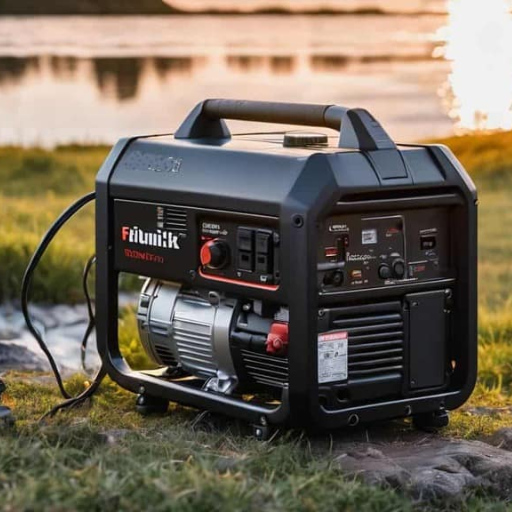
Ensure the generator is performing optimally by keeping these practices:
- Perform Regular Maintenance
As per said maintenance instructions, check and change the engine oil, air filters, and inspect the spark plugs.
- Use the Correct Fuel
The source of fuel should always be as required for your generator so that any probable engine damage can be avoided and its performance maintained.
- Avoid Overloading
Do not produce a system or overheating failure by exceeding the wattage capacity of the generator.
- Store Properly
When not in use, properly clean, dry, store, and ventilate the area. If storing for a long time, empty the fuel and use the stabilizer.
- Run Periodic Tests
Keep starting your generator on a periodic basis to maintain it in working condition and check for problem occurrences.
These steps will help make your generator last longer, along with reliable performance when it is needed.
Tips for Extending the Life of the Generator
- Follow a Maintenance Schedule
Periodic oil changes, air-filter cleaning, and checks on the condition of the spark plug will help ensure the best working condition of a generator and avoid premature failures.
- Use Good Fuel
Always fuel your generator with clean, good-quality fuel to avoid damage to the engine and to assure efficiency.
- Choose the Generator
Keep the generator dry and away from extreme temperatures with a cover or enclosure.
- Avoid Overloading
Make sure the wattage of what you connect does not exceed the rated wattage of the generator. Generators subjected daily to full or near-full load are prone to wear and tear.
- Check Cords and Connections
Make sure all cords and connections are in good shape and suitably rated for your generator, or electrical hazard or inefficiency may result.
- Good Ventilation
Give your generator enough ventilation to prevent overheating and to allow for safe dissipation of exhaust fumes.
- Storage
Store your generator in a clean and dry place with good ventilation when it is not in use. For long-term storage, drain the fuel or add a stabilizer.
- Test Periodically
Periodically start the generator to keep it running and to detect any problems.
Applying these tips to your general generator maintenance is an excellent way to maximize its life, keep it in good working order, and ensure that it will always work when you need it.
Choosing a Generator That Lasts Longer
If you wish to buy a truly long-lasting generator, a few relevancies will come your way. First of all, try for build quality, since generators made with sturdy materials tend to be weighed down quite easily over time. Look for overload protection and high-tech cooling systems in your model as well, for they will keep it safe from damages that might arise because of heavy loads or long hours of operation.
Another important consideration would be the fuel consumption, since those with fuel-injected engines or inverter technologies consume less fuel and hence cause less wear and tear to prolong life. Don’t overlook noise levels: noisier generators mean more vibrations, and vibrations translate to wear and tear on internal components.
Lastly, make sure your chosen generator corresponds to the power you need. Heavy loads on it all the time will drastically reduce its lifespan; therefore, do energy calculations beforehand. With these in consideration, if you keep up with the maintenance, you should be able to purchase one that will deliver dependable power for many years.
Environmental Conditions Affecting Lifespan
Environmental conditions highly affect the generator’s life. Humidity, temperature, fog, dust, or salt are all factors that can reduce the working capabilities and durability of a generator. Corrosion can set in on metal components if humidity is excessive. If the internal mechanisms are subjected to extremes of temperature, whether too high or too low, then excessive wear can fast set in due to internal dislocations; placing of the generator where it can get adequate ventilation while also keeping it under cover in case of rain will greatly decrease the adverse effects of the environment. If the place happens to be in a heavy dust or salt-laden area, like a coastal area, then one has to look forward to more frequent maintenance to tackle the damage to important elements such as air filters and engine systems. When taken in hand, these fundamental solutions to environmental challenges will greatly augment the life of generators in adverse conditions, keeping their performance well up to mark.
Reference Sources
- Montana Tech Digital Commons: This academic paper provides a lifecycle assessment of diesel generators, mentioning a typical lifespan of 20 years with operational limits. Source
- Stanford University – Stationary Fuel Cells: Discusses the use of stationary fuel cells as backup generators, highlighting their lifespan of up to 60,000 hours. Source
- PubMed Central (PMC): While focused on pacemaker pulse generators, this article provides insights into the longevity of specialized generators, with some lasting over 26 years. Source
Frequently Asked Questions (FAQs)
What is the Lifespan of a Standby Generator?
The lifespan of a standby generator typically ranges from 10,000 to 30,000 hours of operation, depending on various factors. A quality generator, when properly maintained, can last between 10 to 30 years. Regular maintenance plays a crucial role in extending the lifespan of your generator, as it helps prevent issues that could lead to early failure. Additionally, the quality of the generator itself and how often it is used can significantly affect how long it lasts. Home standby generators are designed for reliability, but neglecting routine maintenance may shorten their lifespan. If you invest in a new generator, ensure that you follow the manufacturer’s recommendations to maximize its longevity.
How Long Can a Generator Last in an Outage?
A generator can last anywhere from a few hours to several days during a power outage, depending on its capacity and fuel supply. When considering a generator that lasts longer for extended power outages, it’s essential to choose one with sufficient fuel storage and efficiency. For instance, a whole home generator can provide backup power for an extended period if it’s properly fueled and maintained. In contrast, portable generators may have a shorter runtime due to limited fuel capacity. The generator’s installation and the environment in which it operates can also affect its performance during power outages. Therefore, understanding your generator’s specifications and capabilities is key to ensuring it lasts as long as possible during an outage.
How to Extend the Lifespan of Your Home Generator?
To extend the lifespan of your home generator, regular maintenance is essential. This includes routine checks on the oil level, battery health, and fuel quality, which can greatly influence the generator’s longevity. Additionally, keeping your generator clean and protected from the elements will help safeguard it against wear and tear. Investing in quality parts and adhering to a maintenance schedule can also ensure that your generator runs efficiently for many years. Furthermore, using your generator correctly and avoiding overloading it can prevent unnecessary strain, helping it last longer. If you notice any changes in performance, it may be time for a new generator or professional servicing.
What Factors Affect How Long a Backup Generator Lasts?
Several factors affect how long a backup generator lasts, including its quality, usage patterns, and maintenance practices. Generators that are well-maintained and used as recommended typically enjoy a longer lifespan. Environmental conditions, such as humidity and temperature extremes, can also play a significant role in the generator’s durability. If a generator is exposed to harsh weather conditions without adequate protection, its lifespan may be significantly reduced. Additionally, the frequency of power outages and how often the generator is run can influence its overall longevity. Ensuring your generator is installed correctly and regularly serviced can help mitigate these factors and extend its lifespan.
When is it Time for a New Generator?
It’s time for a new generator when your current unit begins to show signs of significant wear or if it frequently requires repairs. If your generator struggles to start, runs inefficiently, or fails to provide reliable backup power, these could be indicators of its declining condition. Additionally, if your generator’s lifespan exceeds the average lifespan of a generator in its category, it may be more cost-effective to invest in a new generator rather than continuing to pour money into repairs. Other signs that it may be time for a new generator include outdated technology or insufficient power output for your needs. Regular assessments of your generator’s performance can help you determine the right time for replacement.
